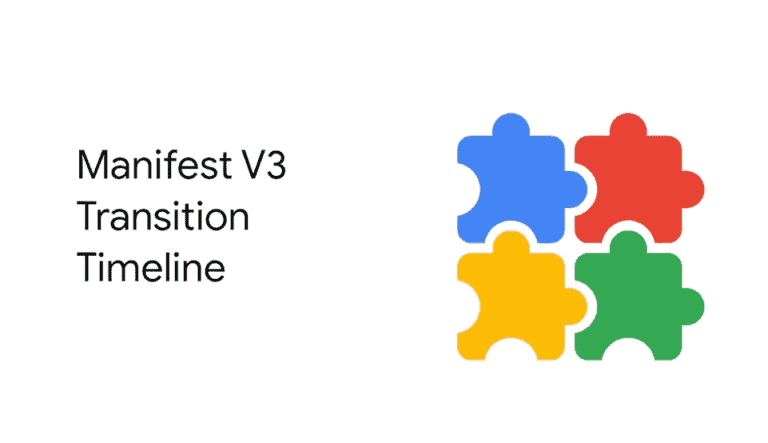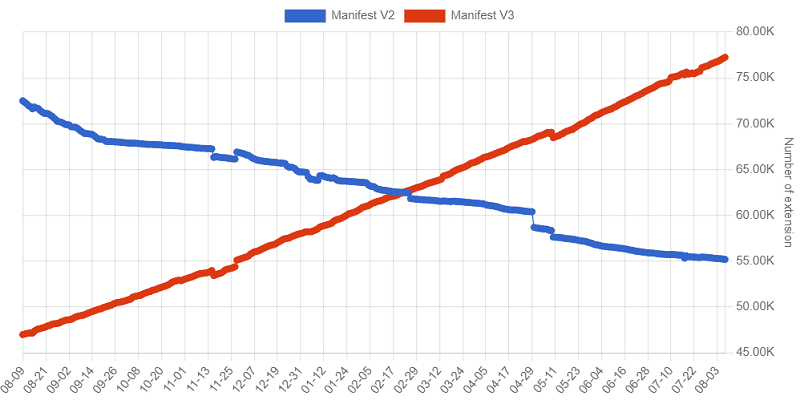Many tens of thousands of Chrome web extensions are not yet compatible with Google’s new Manifest V3 extension rules. For example, the popular adblocker uBlock Origin will no longer work once Manifest V3 is implemented.
Google will replace its old Manifest V2 rules for web extensions with the new Manifest V3. This means that all Chromium-enabled browser extensions will have to be compliant in time to meet these new security and performance requirements. Already, 58.32 percent of Chrome extensions have supposedly been updated.
However, research by Chrome-Stats shows that tens of thousands of web extensions still do not meet the requirements of Manifest V3. This means that when Manifest V2 is phased out, they will no longer work within Chromium-based Web browsers. In addition to Google’s own Chrome, these include browsers such as Edge, Brave, Vivaldi and Opera.
U Block Origin also affected
According to the researchers, there are more than 132,000 extensions for Chromium-based Web browsers in total. Of these, more than 55,000 are not yet compatible with Manifest V3. One of these extensions that has not yet been adapted is the popular adblocker U Block Origin. Thus, this adblocker will cease to work when Google finally switches over.
Google has called on developers to migrate to Manifest V3 before June of this year. A final end date for Manifest V2 has not yet been announced, but the tech giant has since indicated it has started the phase-out process.
API transition causes controversy
The introduction of Manifest V3 caused some controversy among developers and users. In particular, the transition from the WebRequest API to the declarativeNetRequest API raised many questions. This limits the functionality of modifying web requests directly.
The latter has particularly negative implications for the operation of adblockers and privacy tools. Developers and users here point out that, among other things, the use of these extensions conflicts with Google’s own interests. The company wants to earn money from online ads. Google indicates that the API change improves security within Chrome, but opponents say the opposite.
Firefox as an alternative
Users who would like to continue to benefit from all previous extension functionality such as ad blockers, do have an alternative. They can switch to Mozilla’s Firefox, which is not based on Chromium.
This provider has announced that it will integrate compatibility with Manifest V3 but will maintain the WebRequest API.
Also read: Google fights harder against adblockers, apps slower

